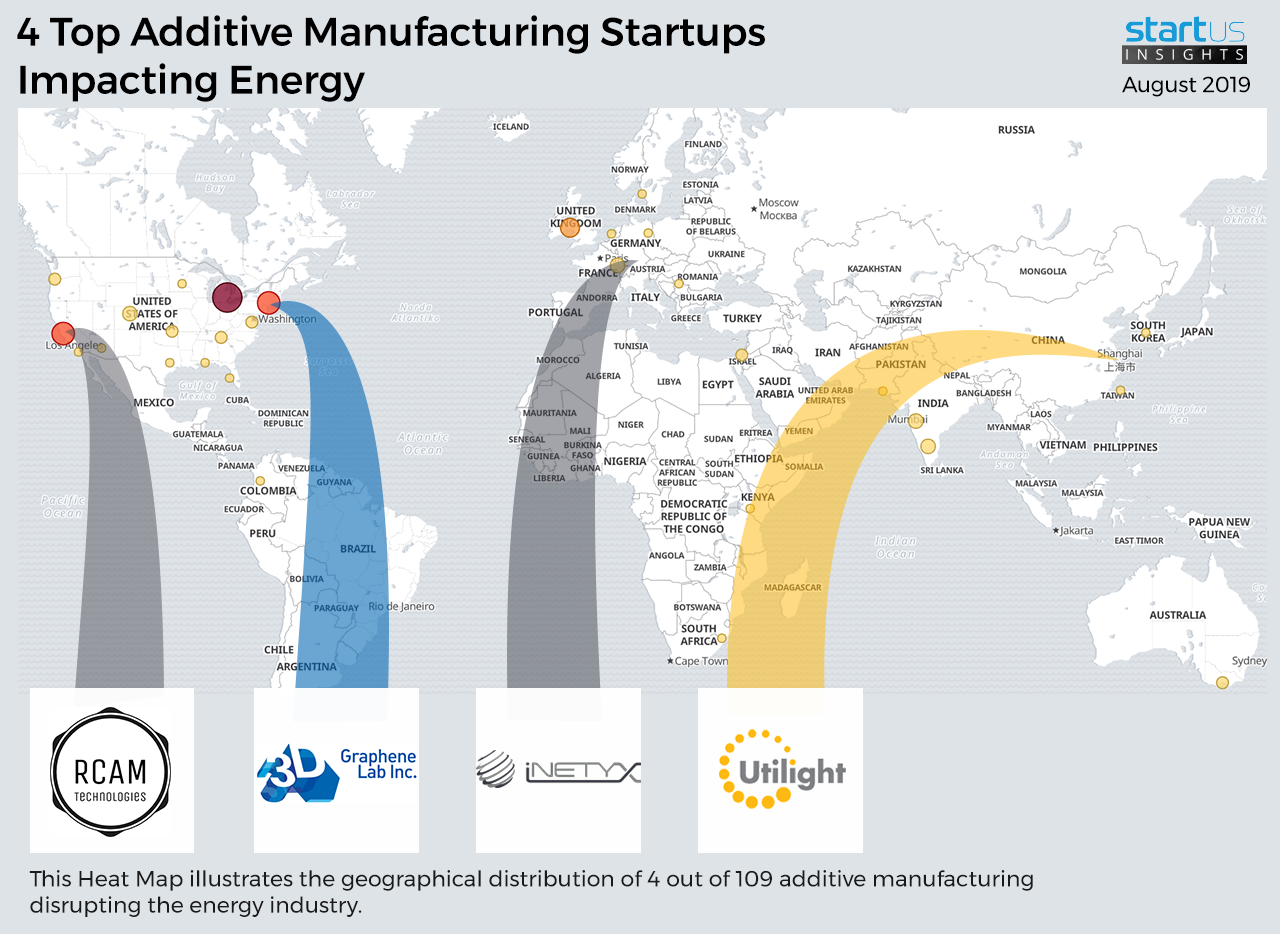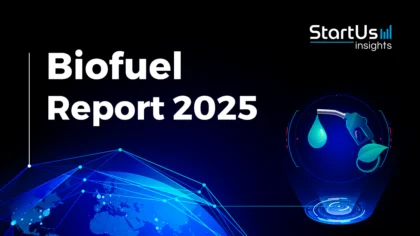Our Innovation Analysts recently looked into emerging technologies and up-and-coming startups working on solutions for the energy industry. As there is a large number of startups working on a wide variety of solutions, we decided to share our insights with you. This time, we are taking a look at 4 promising Additive Manufacturing Solutions.
Heat Map: 4 Top Additive Manufacturing Startups
For our 4 top picks, we used a data-driven startup scouting approach to identify the most relevant solutions globally. The Global Startup Heat Map below highlights 4 interesting examples out of 109 relevant solutions. Depending on your specific needs, your top picks might look entirely different.
Graphene 3D Lab – Energy Batteries
Given the frenzied development of electric vehicles and devices, additive manufacturing in the energy storage sector aims at creating batteries of complex internal structures and increased capacity. Flexibility in shape and size can be achieved by using new materials with precision printing. 3D printing-enhanced battery compositions boost internal chemical reactions, ensuring energy storage is clean and effective. The US startup Graphene 3D Lab produces graphene filaments for 3D printing of disc electrodes in rechargeable batteries. Their graphene solutions simplify and strengthen lithium-ion settings based on controlling the conductivity, flexibility, and sustainability of the battery.
Inetyx – Heat Exchanger Facilities
Due to the way they are designed, energy heat exchangers are exposed to high temperatures with heat variations. This results in continuous wear and tear which requires significant time and money to replace. 3D printing allows for quick and lightweight modeling and manufacturing of heat exchangers with amplified temperature management and better thermal resistance for both conventional and renewable energy sources. French startup Inetyx innovates within the 3D printing industry with its two products: 3D metal printer AMW300X and 3D manufactured micro heat exchanger. Mediated by patented laser metal micro-welding technology, the company offers energy heat exchangers, achieving high performance and durability.
Utilight – Solar Cells
Reducing the costs involved in generating solar energy and making it more accessible remains a challenge in the renewable energy industry. 3D printing has the potential to solve this by replacing a multi-step production process for solar panels with quicker, layer-by-layer manufacturing. Besides, 3D printed solar panels are lighter, compared to traditional ones, which reduces the chance of damage and allows for easy shipping. Israeli startup Utilight develops a 3D printing technology named Pattern Transfer Printing (PTP) to rationalize the photovoltaics metallization process for manufacturing crystalline silicon solar cells. In addition, this innovation allows for an increase in the solar panels’ efficiency while significantly reducing manufacturing costs for photovoltaic elements.
RCAM Technologies – Wind Turbine Printing
In general, the transportation and installation of wind energy turbines require a lot of time and transport facilities. Additive manufacturing addresses these issues by manufacturing wind turbines with enhanced characteristics, creating microturbines or the on-site 3D fabrication of heavy spare parts, that, in total, involves fewer amounts of time and easier transportation. USA-based startup RCAM Technologies manufactures ultra-tall wind turbine towers for land-based and offshore applications. The company utilizes its proprietary Reinforced Concrete Additive Manufacturing (RCAM) technology to produce structurally efficient large-diameter towers on-site, using lightweight reinforcement methods and low-cost concrete that is locally available.
What About The Other 105 Solutions?
While we believe data is key to creating insights it can be easy to be overwhelmed by it. Our ambition is to create a comprehensive overview and provide actionable innovation intelligence for your Proof of Concept (PoC), partnership, or investment targets. The 4 startups showcased above are promising examples out of 109 we analyzed for this article. To identify the most relevant solutions based on your specific criteria and collaboration strategy, get in touch.









